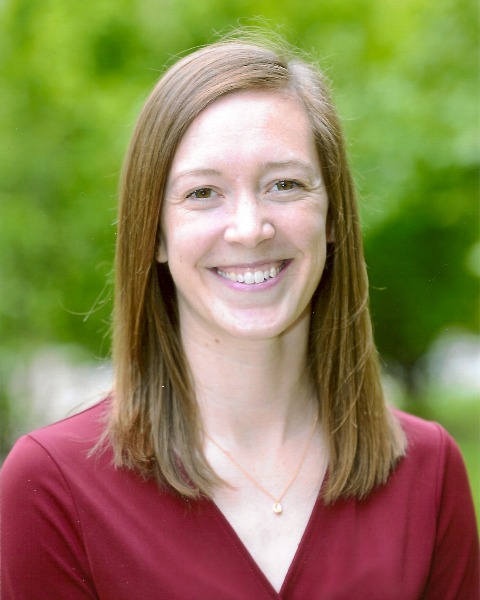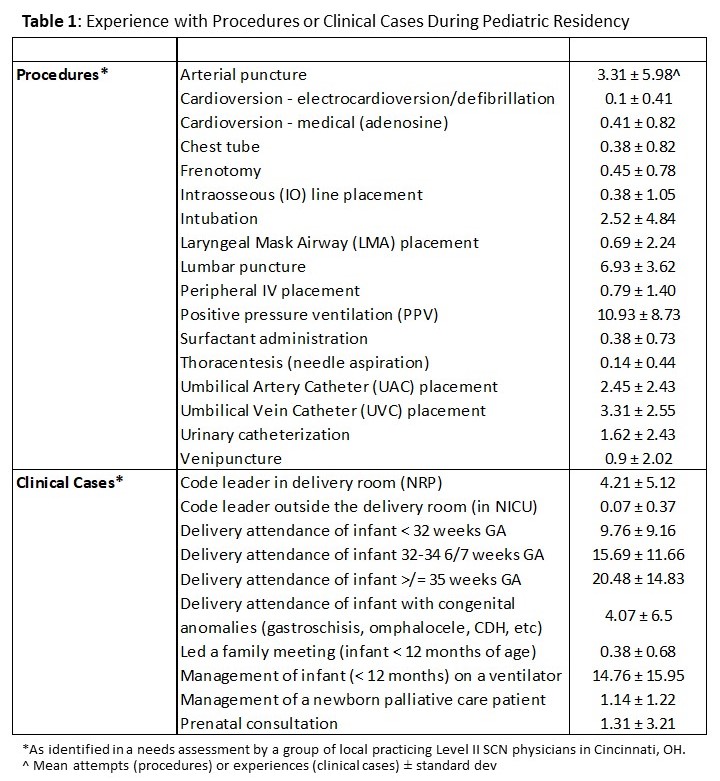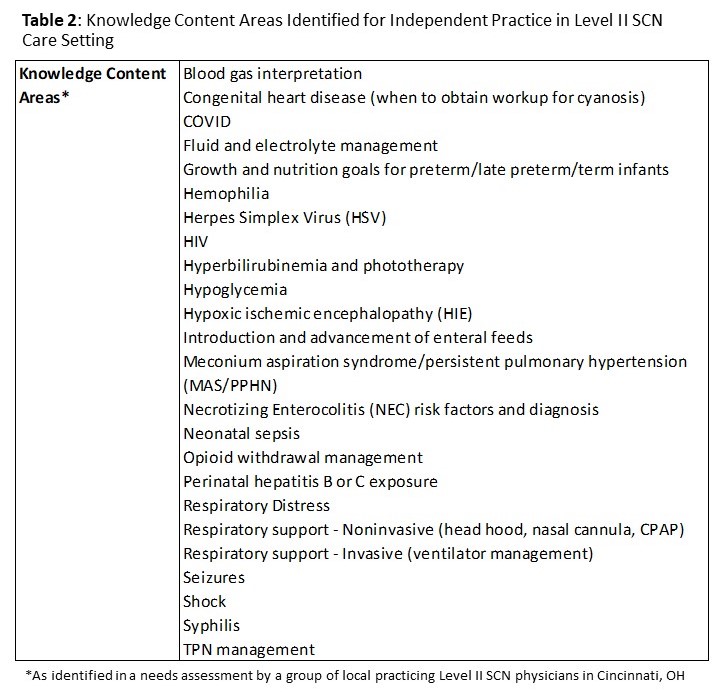Medical Education: Resident
Category: Abstract Submission
Medical Education 10 - Medical Education: Resident III
256 - Need for Specialized Level II Special Care Nursery Education in Trainees Completing Pediatric Residency
Sunday, April 24, 2022
3:30 PM - 6:00 PM US MT
Poster Number: 256
Publication Number: 256.330
Publication Number: 256.330
Amanda Harton, Cincinnati Children's Hospital Medical Center, Cincinnati, OH, United States; Beth Ann A. Johnson, Cincinnati Children's Hospital Medical Center, Cincinnati, OH, United States; Jennifer M. Brady, Cincinnati Children's Hospital Medical Center, Cincinnati, OH, United States

Amanda Harton, MD
Chief Resident
Cincinnati Children's Hospital Medical Center
Cincinnati, Ohio, United States
Presenting Author(s)
Background: Historically, board certified pediatricians have provided a large portion of care in Level II Special Care Nurseries (SCNs). Changes in medical training have created a gap in physicians adequately trained to provide care in SCNs. Graduating pediatric residents are often comfortable and prepared after residency to provide care to well newborns in Level I nurseries, but little is known about comfort and training experience in providing care to infants in the Level II SCN setting.
Objective: To determine experience and perceived comfort in management of Level II SCN specific procedures, clinical cases, and key content areas by graduating categorical pediatric residents.
Design/Methods: A survey assessing Level II SCN experience and comfort at time of residency graduation was developed based on expert opinion and distributed via Residency Program directors to graduating categorial pediatric residents in Accreditation Council for Graduate Medical Education (ACGME) accredited Ohio Pediatric Residency programs in June 2021. Residents were asked their total number of experiences in procedures and clinical cases important for independent practice in Level II SCNs. They were also asked about their perceived comfort in procedures, clinical cases, and key content areas (Table 1 and 2).
Results: Twenty-nine graduating residents completed the survey. Overall, residents had limited experience in procedures and cases (Table 1). Thirty-six percent of residents reported never having a single intubation attempt and 90% had never attempted a thoracentesis. While more experience in a procedure or clinical scenario correlated with increased comfort in independent performance or management, on average residents only felt comfortable independently performing 2 of 17 procedures and managing 1 of 10 clinical scenarios proposed. Just 35% of residents felt ready to independently practice at a Level II SCN at the time of graduation. Twenty-five residents (85%) felt a training program specific to Level II care would be helpful after graduation.Conclusion(s): Overall, graduating categorical pediatrics residents reported limited experience in neonatal procedures. The overwhelming majority did not feel comfortable performing procedures nor managing clinical scenarios or key concepts identified for independent practice in a Level II SCN. Surveyed residents felt a training program specific to Level II care would be helpful. This small study provides support for the need of additional training after graduation from pediatric residency for Level II SCN providers.
Table 1: Experience with Procedures or Clinical Cases During Pediatric Residency *As identified in a needs assessment by a group of local practicing Level II SCN physicians in Cincinnati, OH.
*As identified in a needs assessment by a group of local practicing Level II SCN physicians in Cincinnati, OH.
^ Mean attempts (procedures) or experiences (clinical cases) ± standard dev
Table 2: Knowledge Content Areas Identified for Independent Practice in Level II SCN Care Setting *As identified in a needs assessment by a group of local practicing Level II SCN physicians in Cincinnati, OH.
*As identified in a needs assessment by a group of local practicing Level II SCN physicians in Cincinnati, OH.
Objective: To determine experience and perceived comfort in management of Level II SCN specific procedures, clinical cases, and key content areas by graduating categorical pediatric residents.
Design/Methods: A survey assessing Level II SCN experience and comfort at time of residency graduation was developed based on expert opinion and distributed via Residency Program directors to graduating categorial pediatric residents in Accreditation Council for Graduate Medical Education (ACGME) accredited Ohio Pediatric Residency programs in June 2021. Residents were asked their total number of experiences in procedures and clinical cases important for independent practice in Level II SCNs. They were also asked about their perceived comfort in procedures, clinical cases, and key content areas (Table 1 and 2).
Results: Twenty-nine graduating residents completed the survey. Overall, residents had limited experience in procedures and cases (Table 1). Thirty-six percent of residents reported never having a single intubation attempt and 90% had never attempted a thoracentesis. While more experience in a procedure or clinical scenario correlated with increased comfort in independent performance or management, on average residents only felt comfortable independently performing 2 of 17 procedures and managing 1 of 10 clinical scenarios proposed. Just 35% of residents felt ready to independently practice at a Level II SCN at the time of graduation. Twenty-five residents (85%) felt a training program specific to Level II care would be helpful after graduation.Conclusion(s): Overall, graduating categorical pediatrics residents reported limited experience in neonatal procedures. The overwhelming majority did not feel comfortable performing procedures nor managing clinical scenarios or key concepts identified for independent practice in a Level II SCN. Surveyed residents felt a training program specific to Level II care would be helpful. This small study provides support for the need of additional training after graduation from pediatric residency for Level II SCN providers.
Table 1: Experience with Procedures or Clinical Cases During Pediatric Residency
 *As identified in a needs assessment by a group of local practicing Level II SCN physicians in Cincinnati, OH.
*As identified in a needs assessment by a group of local practicing Level II SCN physicians in Cincinnati, OH.^ Mean attempts (procedures) or experiences (clinical cases) ± standard dev
Table 2: Knowledge Content Areas Identified for Independent Practice in Level II SCN Care Setting
 *As identified in a needs assessment by a group of local practicing Level II SCN physicians in Cincinnati, OH.
*As identified in a needs assessment by a group of local practicing Level II SCN physicians in Cincinnati, OH.